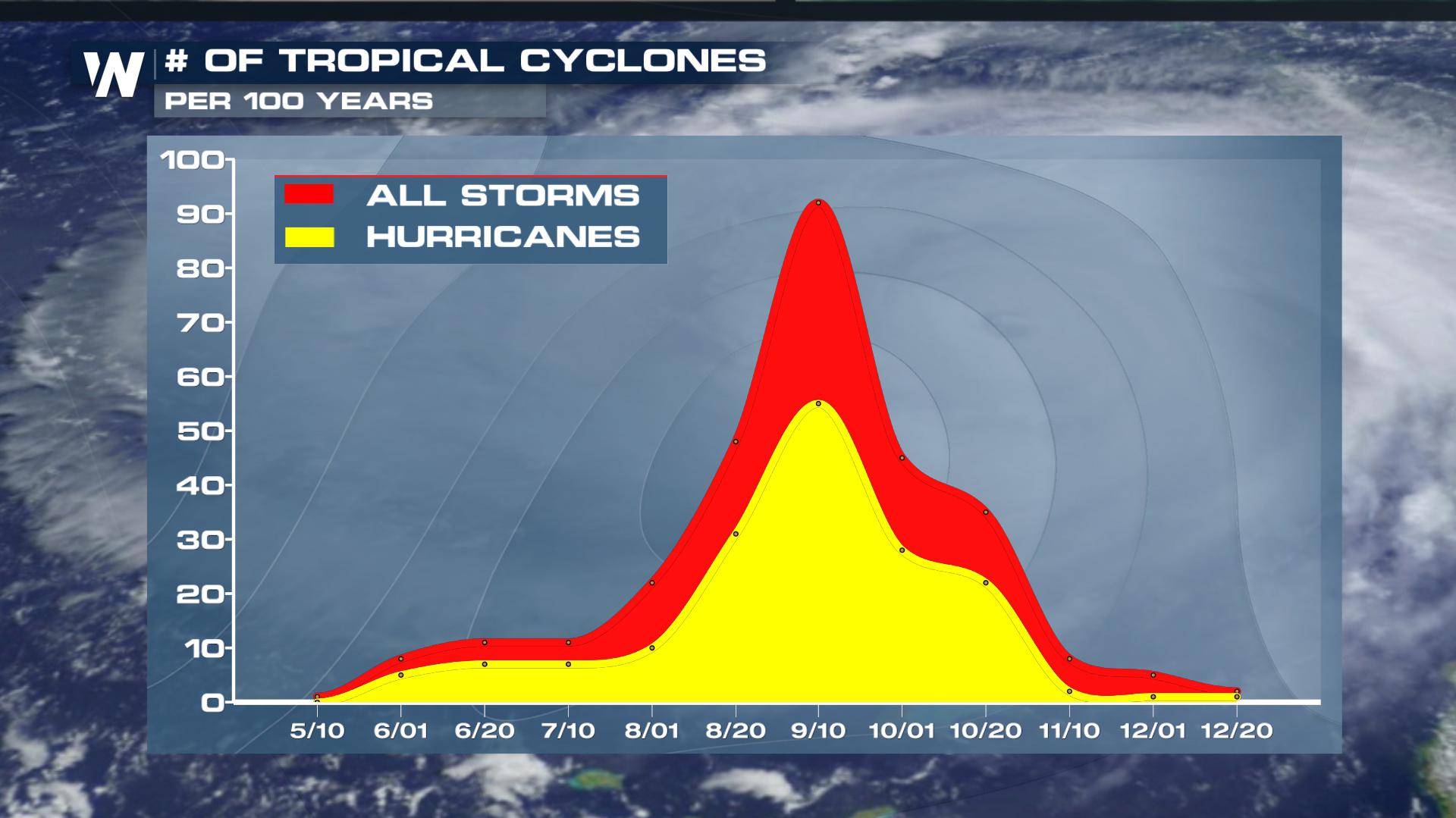While Sub Tropical Storm Alberto got the season off to an early start this year, impacting the Gulf Coast this past week, Hurricane Season officially starts tomorrow. The start of the season is usually slow, with more tropical weather occurring from July through October when conditions are more favorable. However, preparations for a landfalling tropical system should begin long before a hurricane actually forms.
As many learned this past year, hurricanes can cut off your power and water supply and you may not have them back for over a week. If roads are flooded or blocked by debris, you won’t be able to get supplies after the storm hits either. Preparations for you and your family should be made well in advance of any approaching tropical system so that only the last minute things need to be done before the storm hits.
June is Hurricane Preparedness Month Making a plan with your family doesn’t need to wait and every member of your family can be a part of it. If you’re out of the house when an emergency occurs, the plan doesn’t do much good if you’re the only one who can make it happen. You can also prepack supplies for both your home and your vehicle.
5 gallons of water per person is usually enough to last close to 5 days. Also keep pets in mind if you have any. You can also prepare a large bin of tap water to use for cleaning and hygiene.
You also want to ensure you have a 5 day supply of food that doesn’t go bad, like canned food or dried pasta. Extra formula for babies and a safe storage container for bottles should be considered, as well as a supply of food for any pets.
Prescription medications should also be considered when looking for long term needs. Disasters are very stressful for those dealing with them and can cause medical issues. One of the biggest causes of death for people that isn’t directly storm related are medical issues that occur during last minute preparations. A first aid kit, and instructions on how to use it, are very important when Emergency Medical Services may become overwhelmed or unable to get you to due to the storm. You’ll also want items like hand sanitizer, wet cleaning clothes, like baby wipes and any essentials like diapers, feminine hygiene products and antibacterial soap.
Make sure you have important documents in a sealed container so they won’t get wet. Wills, passports and things like birth certificates and social security cards will help establish your identity. Copies of any insurance policies will help when it comes to rebuilding.
Cash will also be important. While power may return and stores may open, they may not be able to use credit card systems. Having cash will allow you to buy supplies once things do start to return to normal.
Household supplies, such a flashlights and batteries are a must for when the power goes out. Candles are a fire risk if an accident occurs. Extra batteries to change the ones in smoke detectors and carbon monoxide detectors are also a good idea. You’ll want to make sure you test these before the storm arrives. A fire extinguisher is a good safety measure against any small fires that may occur. Having a battery powered radio to listen to updates on the storm and repairs that are occurring after the storm is also a good idea.
If you need to evacuate, you want to be able to bring many of these items with you in the car. You’ll also want to ensure you have a full tank of gas before the storm arrives. Lines at gas stations may be long, so prepare for a long wait. Ensuring your car’s roadside emergency kit is well stocked with flares, a good tire iron, and that your spare tire is ready to go are essential to any preparation you need to make. Having Jumper cables can help out not only yourself, but someone else in trouble. Paper maps are also a good idea in case cell phone batteries run low.
For your yard, make sure there’s nothing that could blow around during the storm and damage your home. Move bikes, lawn furniture, grills, propane tanks, and building material inside or under shelter.
Covering your windows with plywood, or closing the storm shutters if you have them, can protect them from shattering and keep your home safe. Lowering the thermostat in your refrigerator and freezer to the coolest possible temperature will help it remain colder if your power goes out. This will help any perishable food you do have stay fresh longer after the storm passes.



